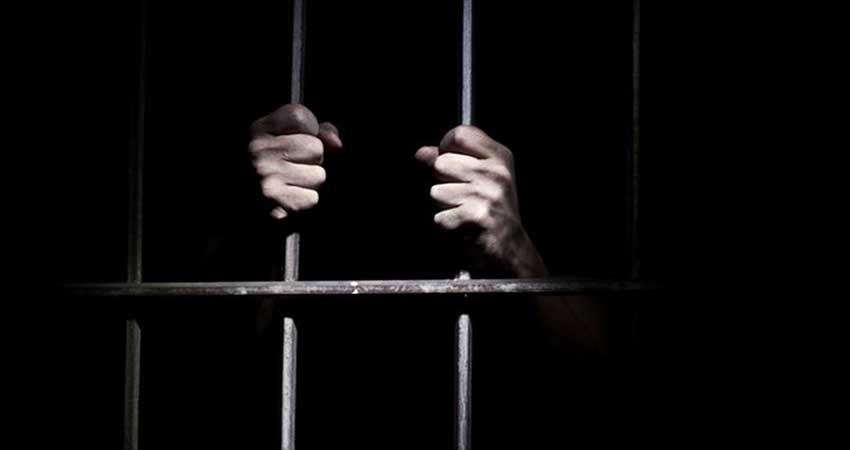
We live in a region, a country, that desperately needs criminal justice system reform.
The United States makes up about 5 percent of the world’s population but almost 25 percent of the global prison population. The U.S. has eight times the incarceration rate of Western European nations. One out of every 100 Americans is behind bars. This ratio jumps to 1 in 30 for young men ages 20 to 34.
The economic and social impact on society, communities and families is enormous, far reaching and long lasting. Mass incarceration and the school-to-prison pipeline have emerged as among the most pressing civil rights issues facing our communities. As our country continues to put some of our most vulnerable populations behind bars — the mentally ill, people of color, the economically disenfranchised — policies and practices have in fact deviated from the stated goals of rehabilitation and justice.
Marginalized people have been especially disenfranchised by the increase in detention and severity of sentencing, and mass incarceration is a problem that reinforces and exacerbates racial inequality in our country.
Black Americans are incarcerated at more than five times the rate of whites. For young black men ages 20 to 24, 1 in 9 is incarcerated. There is significant evidence that not only supports the early start of their criminalization but their disparate treatment once they encounter the system. If African Americans and Latinos were incarcerated at the same rate as the white population, the prison and jail population in the country would decline by nearly 40 percent.
While the paramount responsibility of the criminal justice system is to preserve public safety and protect individual rights, the system is deeply flawed and often our children pay the greatest price. Nationally 1 in 28 children has a parent behind bars resulting in many children struggling to live normal lives among their peers when their parents are incarcerated. In Allegheny County, about 8,500 children currently have a parent behind bars.
In the Pittsburgh region, mass incarceration and the school-to-prison pipeline mirror national trends. For example, when local crime peaked in 1995, the Allegheny County Jail’s daily population was about 1,450. Today the average population is about 2,200, with about 49 percent African Americans.
The system heavily disfavors poor and black individuals, and the high rates of exclusionary practices and incarceration do not contribute to public safety. Indeed, there is significant evidence that mass incarceration and the school-to-prison pipeline makes everyone less secure and negatively affects black communities.
Numerous factors contribute to the need for criminal justice reform at all levels: national, state, county and municipal. One of the leading issues is financial. Fines, cash bail and other issues disproportionately impact poor people. According to the ACLU, for almost 45 years it has been illegal in Pennsylvania to jail people who are too poor to pay court fines and costs, yet it continues to happen. Annually, several thousand Pennsylvanians who do not have the capacity to pay court fines and costs are jailed.
Judges are required to determine a defendant’s ability to pay before they are jailed, but far too often this does not happen. Similarly, though a poor defendant threatened with jail is legally entitled to a court-appointed lawyer, this rule is not adhered to in some courts.
Another area of concern is the large percentage of inmates in need of health care interventions rather than incarceration. In the Allegheny County Jail population, 75 percent of inmates have a substance abuse issue related to the heroin and opioid crisis, or an undiagnosed or untreated mental health issue.
And too often children and youth involved with the justice system have to navigate the process without adequate support and guidance. Yes, they have a right to legal counsel, but unfortunately many young people fail to receive the representation they need. Without understanding the consequences or their constitutional right to counsel, many waive their rights and accept plea offers. Last year, there were more than 3,300 youth referred to the juvenile probation system in Allegheny County. Of those referred, 74 percent were African American and 69 percent were males, and the majority of the youth, 73 percent, were referred for non-violent crimes.
Many of the cases were school-based referrals that serve as the starting point for the school-to-prison pipeline. Since the 1980s with the increased use of exclusionary discipline practices, students who most need extra support are frequently most impacted. Acting out behavior in schools is often a symptom of mental or emotional health needs, and there is evidence that nearly 70 percent of youth involved in the juvenile justice system have at least one mental health issue, compared to 22 percent of youth in the general population. Many districts and schools have put resources into law enforcement, or “school resource officers,” instead of mental health professionals and connections to important community supports.
The vast majority of students who are excluded from classrooms or referred to the juvenile justice system have not engaged in violence. In the 2015-16 school year, 70 percent of suspensions in Allegheny County were for “conduct.” Instead of dealing with students who are disruptive or acting out in a school context, these students are being fed into the juvenile justice system — nonviolent youth who pose little risk or no to public safety and are often most in need of a stable and supportive school environment.
In addition, black students in Allegheny County are much more likely to be suspended by their white peers. In 2015-16, 41 per 100 black students were suspended compared to 5.6 non-black students. In other words, a black student is 7.3 times more likely to be suspended than a white student in the county. If a student is suspended, the likelihood of graduation drops to about 54 percent.
The Heinz Endowments is committed to improving the lives of people who are impacted by the judicial system. We have created a major initiative to promote criminal justice system reform in both the Allegheny County adult and juvenile justice systems, and increase community engagement and support. We are working to reduce the use of the Allegheny County Jail and Schuman Juvenile Detention Center, and improve conditions for those confined specifically related to health, with an emphasis on substance use, mental health and safety needs.
We believe the Endowments can play a role in bringing stakeholders together in the goal of decreasing the jail population, expanding opportunities for mental health and substance abuse treatment, and drastically reducing the number of youth removed from their classrooms by providing opportunities for early intervention and addressing policy in education code. We also can work toward restoring viable options for formerly incarcerated people — particularly youth and young adults — to return as contributing members to their families, schools, jobs and communities, prepared to pursue opportunities to live healthy and productive lives. Making gains in these areas and then actually developing policy recommendations and implementing a plan can help our region in promoting justice.
Several reform efforts are underway, and the time is right to accelerate change, launch innovative service models, and support, and pursue needed policies to ensure long-term, sustainable transformation. Issues of justice and equity are central to the mission of the Endowments. In a region that already struggles with underserving black or low-resource members of our communities, mass incarceration and the “school-to-prison pipeline” undermines our work to create what our foundation refers to as a Just Pittsburgh.
Our challenge is to build on community strengths and the resilience and determination of families who aspire to live happy, productive, healthy lives in thriving communities. We can invest in and support a different trajectory for our children — those who are nurtured and given opportunity from birth and those who languish in the system for early missteps or systemic bias. It is a trajectory that is built on fairness and hope for a future, and captures the dreams and imagination of what could be.
Written by:

Carmen Anderson
Director of Equity and Social Justice
